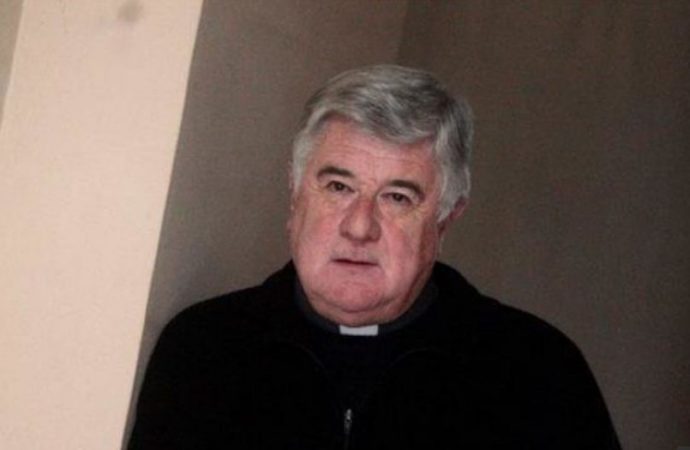A priest who was once a national hero in Chile, and who now finds himself another casualty of that country’s massive clerical sexual abuse crisis, has been expelled from the priesthood by Pope Francis after being found guilty of abusing minors and vulnerable adults.
The Archdiocese of Santiago in Chile released a statement on Saturday saying that Cardinal Luis Ladaria, prefect of the Vatican’s Congregation for the Doctrine of the Faith, had notified the Chilean Church that on Sept. 12 Francis had decreed, “with no possibility of appeal,” the “removal from clerical state ‘ex officio et pro bono Ecclesiae’” of Father Cristián Precht Bañados.
Precht, who rose to fame in Chile for his defense of human rights during the government of dictator Augusto Pinochet, had already been suspended from ministry from 2012-2017 after the CDF found him guilty of abusing both minors and adults.
The former priest had played a key role during the visit of St. John Paul II to Chile in 1987, serving as the vice-president of the local organizing committee and also as head of liturgies.
Precht’s influence in the Church of Santiago has been profound, as he served as regional vicar, head of youth ministry, and even as executive secretary of the commission for the canonization of Chilean St. Alberto Hurtado.
In addition, at a continental level, he was an adjunct secretary General of CELAM, the conference of Latin American bishops, from 1995 until 1999.
The priest was one of two of the closest collaborators of Cardinal Raúl Silva Henríquez, head of the Archdiocese of Santiago from 1961 to 1983. The other, Father Miguel Ortega, has also been found guilty of abuse.
Both Precht and Ortega, who died in 2015, have faced new accusations in recent months, this time from victims of the Marist brothers, who say the two sexually abused children when visiting Marist facilities, including making sexual advances to teenagers who went for confession.
Though the two have very different personalities, many have drawn parallels between the influence Precht has had in the Church in Santiago to that of another abusive priest, Fernando Karadima, sentenced to a life of penance and prayer in 2011.
One a hero to the left, the other much more conservative, the two moved among elites and the country’s leaders, but the first one was a “charming bear, friendly with everyone,” while Karadima was the opposite.
After the CDF found Precht guilty in 2012, it was up to the archbishop of Santiago, Cardinal Ricardo Ezzati, to apply a sanction. After Father Jaime Ortiz de Lezcano, the diocesan judicial vicar, recommended Precht receive a life sentence, Ezzati instead decided to suspend him for five years.
A Chilean source with knowledge of the situation told Crux that the “personal” decision by Ezzati was “unusual” and “defied all common sense,” seeing both that the CDF had found the priest guilty and that the judicial vicar had suggested a harsher punishment.
It’s unclear why Karadima got a life-long sentence and Precht only a five-year one, when the two were investigated at virtually the same time.
Precht went back to ministry in 2017, but when new allegations against him surfaced earlier this year, a second canonical process began.
Among other things, he was banned from leaving the diocese until the process ended, a decision he tried to appeal in the local civil courts. When it wasn’t accepted, he filed the appeal to the country’s Supreme Court, which did accept it. He presented the necessary documentation earlier this month.
It’s unclear what civil authorities will do now that Francis has decreed that Precht is guilty. Even after the Vatican found him guilty in 2011, local authorities did not sanction him.
Ezzati today faces his own charges, after being subpoenaed by the local prosecutor’s office for allegedly having covered up cases of clerical sexual abuse. He’s one of seven Chilean bishops who’ve been summoned, some on suspicions of cover-up, others presumably for having abused minors and vulnerable adults themselves.
Every Chilean bishop presented his resignation in May, and Francis has accepted those resignations from two of the seven bishops who’ve been subpoenaed. Ezzati is still leading the Archdiocese of Santiago, but to avoid the protests that occur sporadically when he says Mass, he’s given up some of his pastoral duties, including leading the annual Te Deum Mass on Sept. 18.

